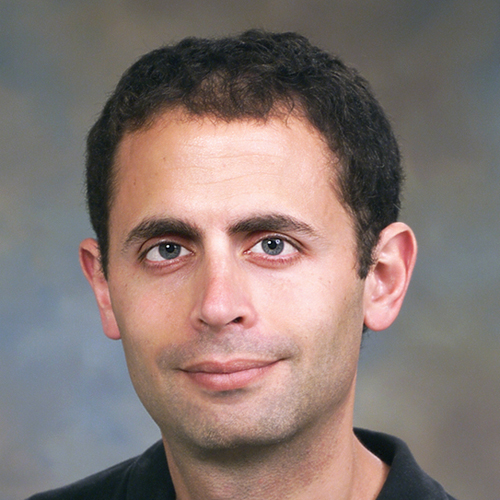Cravatt lauded as ‘gem of the scientific community’ for his work on activity-based protein profiling
Benjamin Cravatt of The Scripps Research Institute in La Jolla, Calif., has been named the winner of the American Society for Biochemistry and Molecular Biology/Merck Award.
Cravatt, professor and chair of the chemical physiology department at Scripps, received this award based on his groundbreaking contributions to the development and application of post-genomic methods for the functional annotation of mammalian enzymes. “Cravatt pioneered the use of the now widely practiced activity-based protein profiling technology, which utilizes site-directed chemical probes to profile active enzymes in complex proteomes,” said Chaitan Khosla of Stanford University, who nominated Cravatt for the award.
Most proteomic technologies measure protein abundance and therefore provide only an indirect estimate of protein activity. Cravatt’s work has led to the development of a chemical strategy to profile the functional state of enzymes through the development of active site directed probes, known as activity-based protein profiling, or ABPP.

I am tremendously honored to receive the 2014 ASBMB-Merck Award, which is a tribute to the many talented and hardworking graduate students, postdoctoral fellows and collaborators with whom I have had the pleasure of working during my career at TSRI.
—BENJAMIN CRAVATT
James Wells of the University of California, San Diego, describes Cravatt as “a star at the chemistry-biology interface and a worthy recipient of this important award.”
Cravatt attended Stanford University, earning a B.A. in history and a B.S. in biological sciences. He then pursued a Ph.D. at The Scripps Research Institute under the mentorship of Dale Boger and Richard Lerner. At Scripps, he became an assistant professor in 1996 and rose through the ranks to become professor and chair in 2007.
“His love of science is overflowing and contagious. If you haven’t had the chance to hear him speak about his work, there’s nothing I’d recommend more highly,” says Daniel Herschlag of Stanford University.
Cravatt will receive his award at the Experimental Biology 2014 conference in San Diego. He will present his award lecture at 2:55 p.m. Tuesday, April 29, in Room 6A of the San Diego Convention Center.
Enjoy reading ASBMB Today?
Become a member to receive the print edition four times a year and the digital edition monthly.
Learn moreGet the latest from ASBMB Today
Enter your email address, and we’ll send you a weekly email with recent articles, interviews and more.
Latest in People
People highlights or most popular articles

Simcox wins SACNAS mentorship award
She was recognized for her sustained excellence in mentorship and was honored at SACNAS’ 2025 National Conference.

From humble beginnings to unlocking lysosomal secrets
Monther Abu–Remaileh will receive the ASBMB’s 2026 Walter A. Shaw Young Investigator Award in Lipid Research at the ASBMB Annual Meeting, March 7-10 in Washington, D.C.

Chemistry meets biology to thwart parasites
Margaret Phillips will receive the Alice and C. C. Wang Award in Molecular Parasitology at the ASBMB Annual Meeting, March 7-10 in Washington, D.C.

ASBMB announces 2026 JBC/Tabor awardees
The seven awardees are first authors of outstanding papers published in 2025 in the Journal of Biological Chemistry.

Decoding how bacteria flip host’s molecular switches
Kim Orth will receive the Earl and Thressa Stadtman Distinguished Scientists Award at the ASBMB Annual Meeting, March 7–10, just outside of Washington, D.C.

Thiam elected to EMBO
He was recognized during the EMBO Members’ Meeting in Heidelberg, Germany, in October.

